Compare Guinea Pig Insurance UK
Guinea pigs are the pet of choice for many who don’t want the responsibility of a cat or dog but are still looking for a cute companion to join the family. Unfortunately, veterinary bills for injured or ill animals, no matter how small they are, can still be expensive.
Guinea pigs are considered exotic pets in the UK, and only specialist vets are qualified to treat them. For this reason, vet bills can be expensive and it is worth considering specialist small mammal insurance to cover you and your guinea pig should it fall ill.
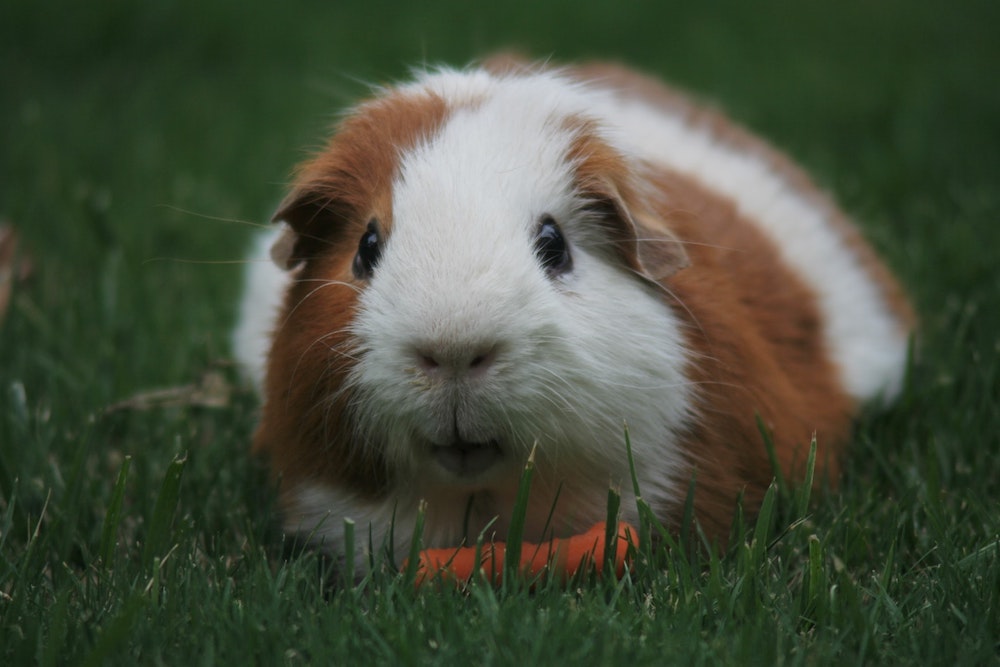
Is it worth taking out guinea pig insurance?
There is no compulsion to take out pet insurance for guinea pigs in the UK, and it is for you to decide whether you believe it will be beneficial to you and your pet.
With a lifespan of between 4 and 8 years, your guinea pig is highly likely going to need some sort of medical treatment in that time.
Guinea pigs are susceptible to serious health issues. Because of its small size, treating a guinea pig isn’t only more challenging, it can also be a lot more expensive. For a relatively small annual cost, guinea pig insurance gives you peace of mind that if your pet becomes unwell or suffers an injury everything will be done to restore them to full health.
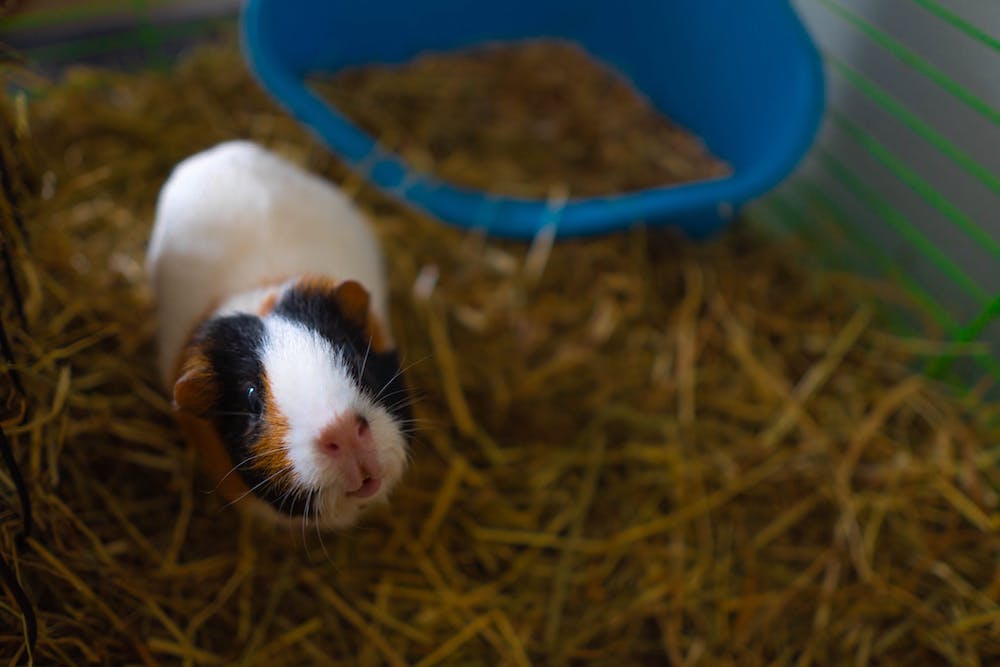
What types of guinea pig insurance are there?
Accident-only policies cover you with a fixed sum in the event that your guinea pig has an accident. This fixed sum can be used to pay towards treatment.
With a time-limited insurance policy, you will receive a fixed sum to cover your guinea pig for a certain period of time, which usually begins from the start of an illness or injury, meaning that you’ll receive specific coverage for just as long as you need.
You’ll be covered against costs relating to all accidents and illnesses by receiving a maximum amount of money from your insurer. This ensures full compensation in the event that your guinea pig becomes ill or has an accident. Once the maximum has been paid out, you won’t be able to use it again.
With a lifetime plan, your guinea pig will be covered against costs for any illness or injury, up to a certain amount each year. You can renew each year to receive full lifetime protection for your guinea pig.
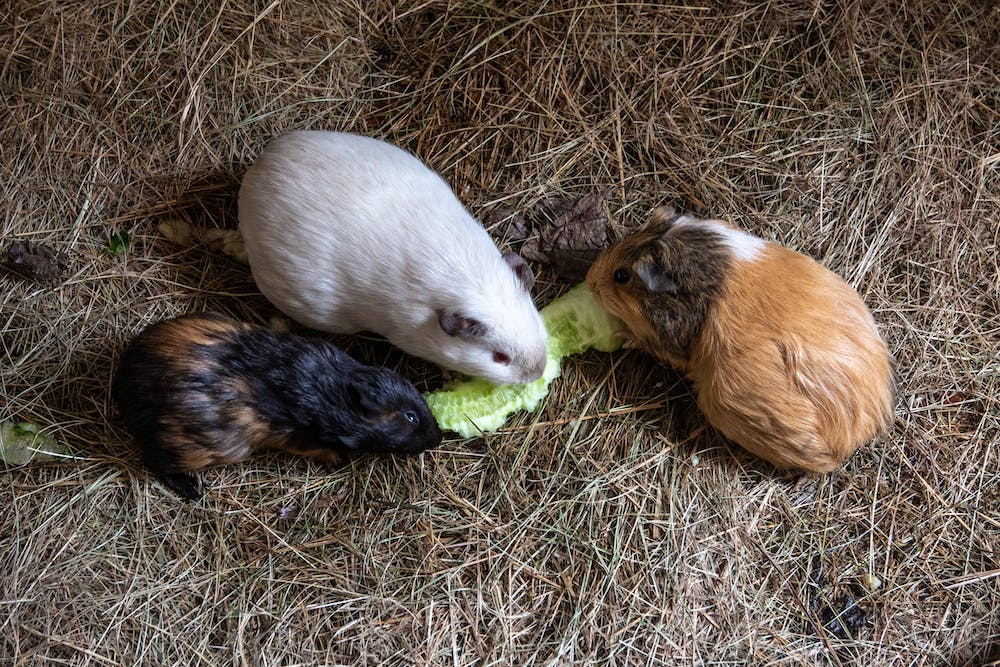
What does guinea pig insurance cover?
Different policies offer differing amounts of cover depending on the coverage you need and how much you want to pay. Most policies cover the following:
Vet bills can be expensive, even for smaller pets like guinea pigs. Like most household pets, guinea pigs are susceptible to any number of illnesses and can get into mischief and injure themselves. As minor as their ailments may be, the costs can add up over time. Vet bill cover is a high priority for most pet insurance policies.
In the event that your guinea pig escapes, is lost, or stolen, you will receive standard ‘loss and theft’ coverage to protect you from the associated costs. You should also be covered against advertising costs should your furry friend go missing.
Many insurers will cover you if your guinea pig’s hutch or cage is damaged by extreme weather conditions.
Most insurers offer third-party cover should your guinea pig injure someone or damage their property.
Losing your guinea pig is like losing a family member. In the unfortunate event that yours dies by injury or illness, or needs to be put down, then you will be covered against the costs. However, it’s important to note that some insurers won’t cover you if your guinea pig is over a certain age, so be sure to check the small print of your policy.
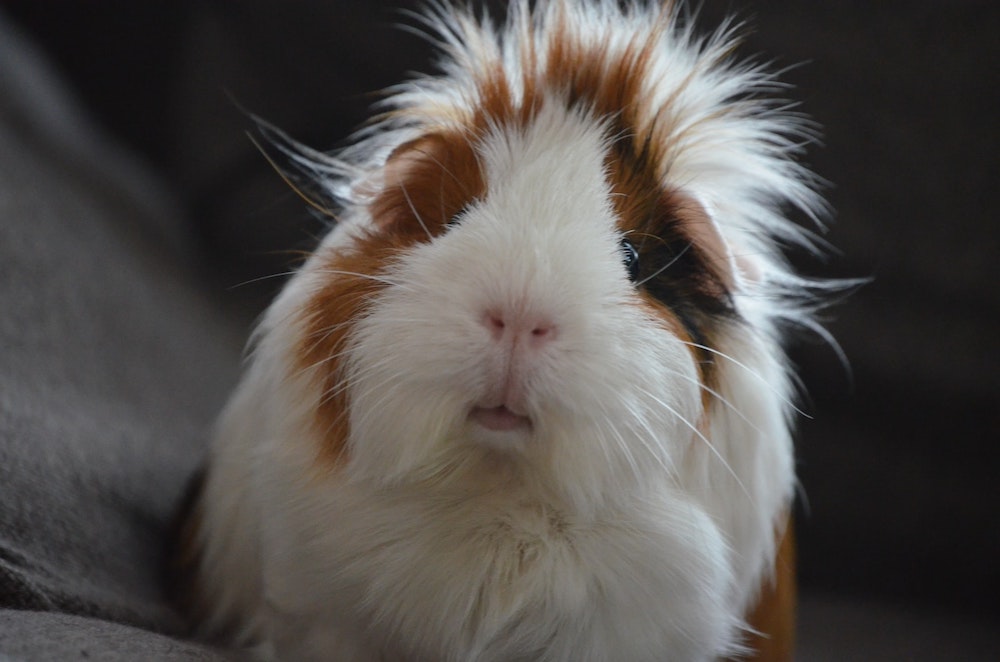
How much does guinea pig insurance cost?
There are many variables that can affect the cost of guinea pig insurance in the UK. For example, different breeds are more expensive than others, and how much you paid for your guinea pig and the point in its life that you chose to take out an insurance policy play considerable roles in determining the overall cost.
As with most insurance, more comprehensive cover will cost you more than an accident-only policy. It is important to make sure that you choose a policy that gives you the cover you want for your pet at a sustainable, affordable cost.
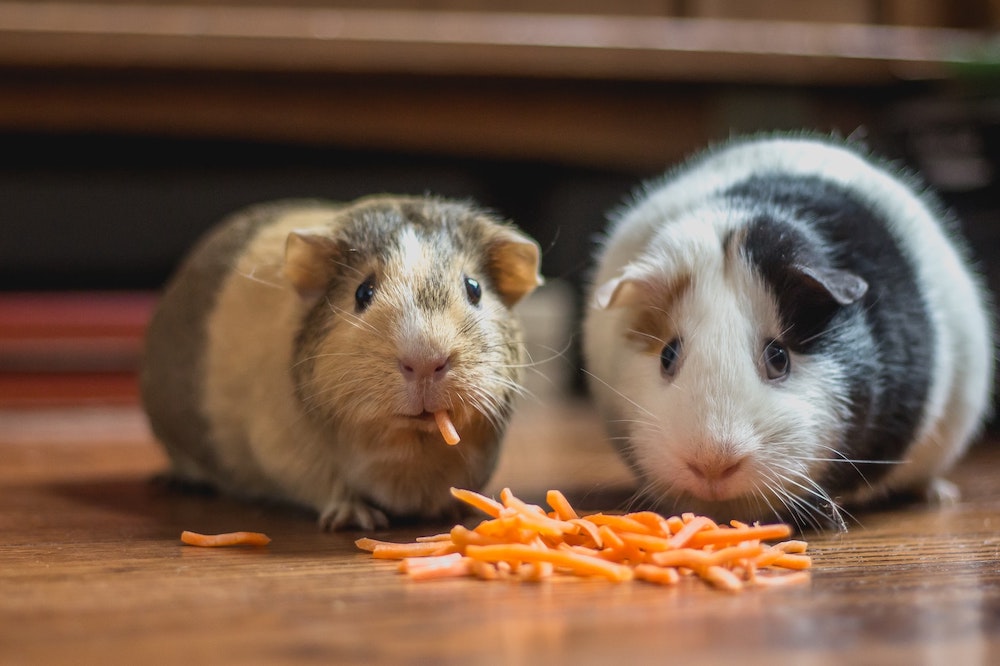
Tips for taking care of your guinea pig:
Although they are small, guinea pigs need just as much care and attention as any other pet. This includes a balanced diet with fruit and vegetables, plenty of exercise to stay healthy, and plenty of love to stay happy.
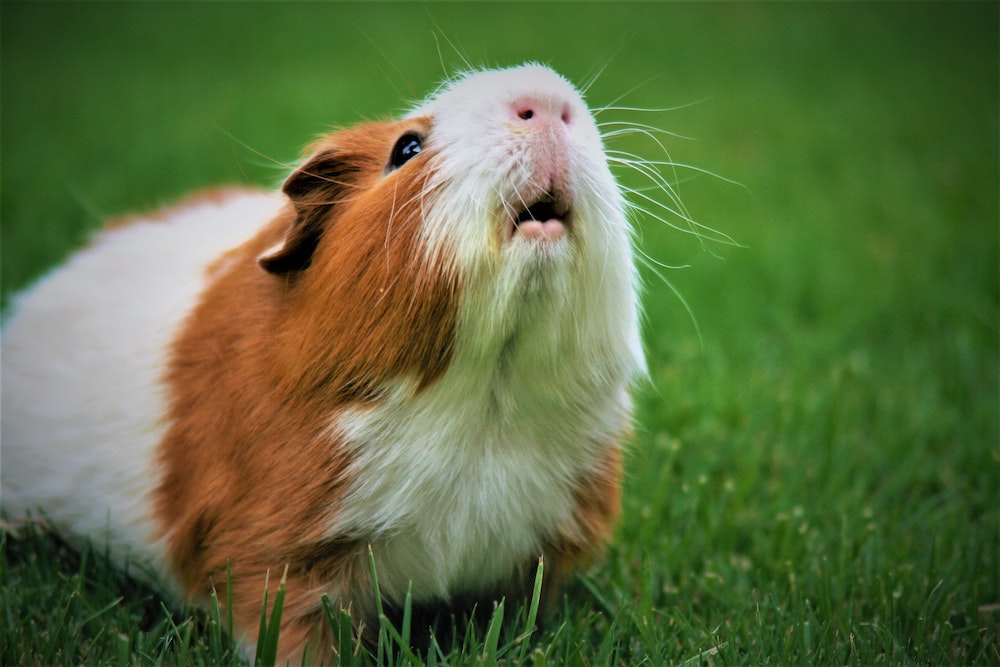
Are there any particular guinea pig health problems to consider?
As with any pet, guinea pigs can suffer from many common health ailments.
The small size of a guinea pig can be problematic when it comes to veterinary care, so it is important to keep an eye out for symptoms so you can tackle the illness or injury as quickly as possible.
Common health problems for guinea pigs include:
Barbering
This is when a guinea pig gnaws at their own fur or the fur of another guinea pig. This is a sign of stress and can be resolved by providing your pet with something else to chew on. Unresolved, barbering can result in infection.
Diarrhoea
Guinea pigs have sensitive digestive systems and so diarrhoea is not uncommon. Because dehydration often follows, diarrhoea can mean a visit to the vets to receive the care and/or medication.
Malocclusion
This is when teeth become misaligned. This can be caused by lack of a good diet, injury, infection, genetics or old age. In most cases, treatment will consist of a vet filing down your guinea pig’s teeth.
Parasites
Guinea pigs are susceptible to parasites on top of their skin and beneath. Keeping a clean cage/hutch is important to prevent parasites, but should your pet suffer, a vet can prescribe medications for parasite removal.
Scurvy
Guinea pigs need plenty of vitamin C in their diets because they have such delicate constitutions that an absence of vitamin C can often lead straight to scurvy. Guinea pigs lack the enzyme needed to synthesise vitamin C so you will need to supplement their diet. Symptoms of scurvy include swollen feet, a rough coat, ulcers and a disinterest in food – all of which can result in expensive vet bills.
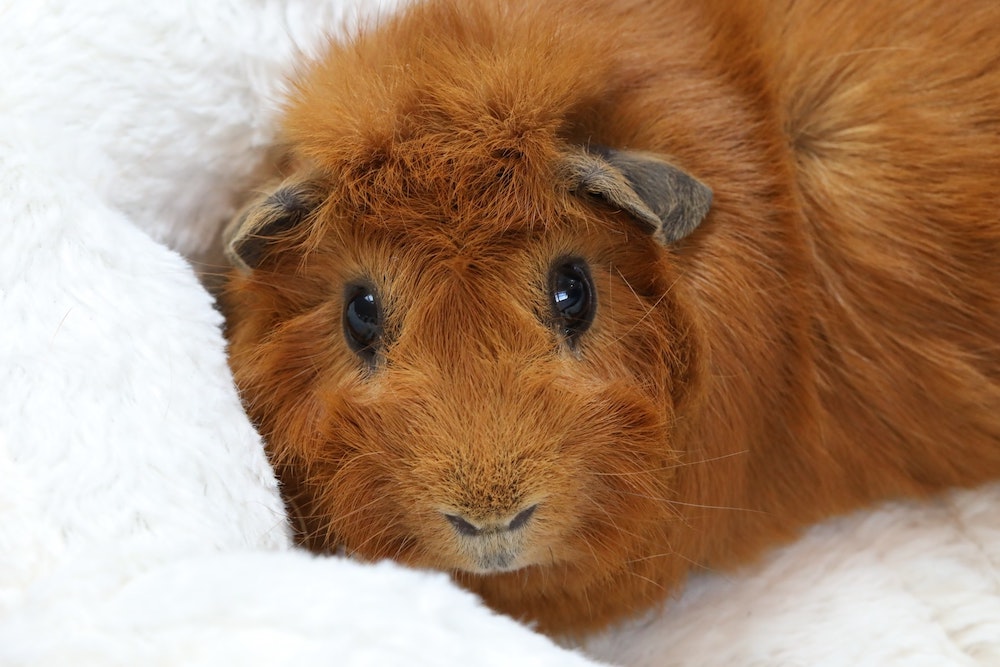
Different breeds of guinea pig
The American (short-haired), the Abyssinian (rough-coated), the Peruvian (long-coated), and the Sheltie/Silkie (also long-coated) are the breeds most frequently seen as pets, but there are many more breeds of guinea pig, including:

